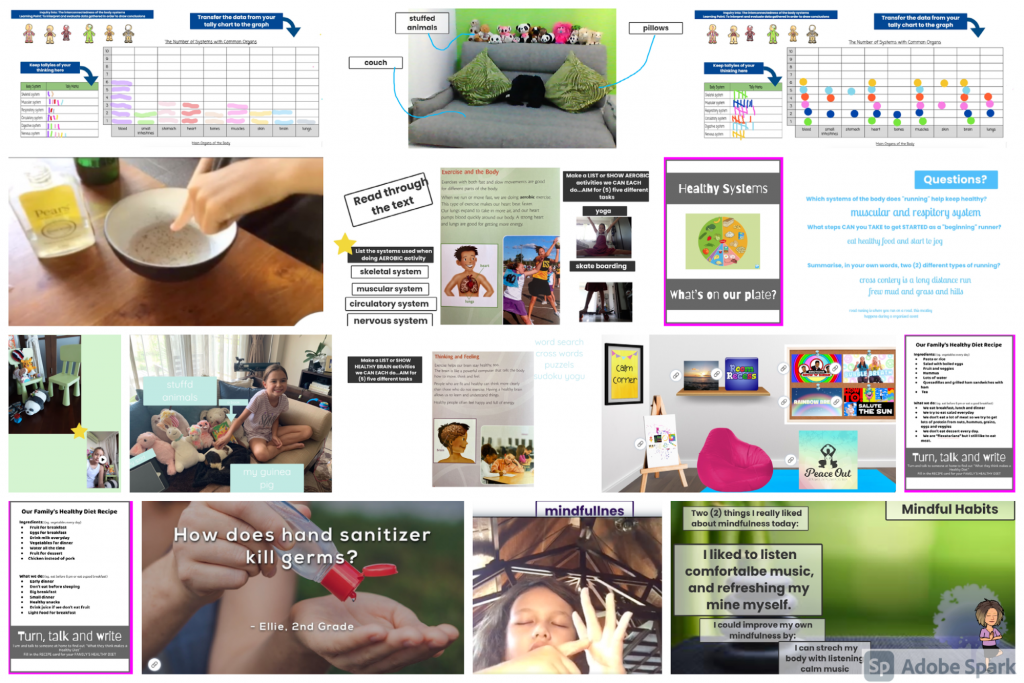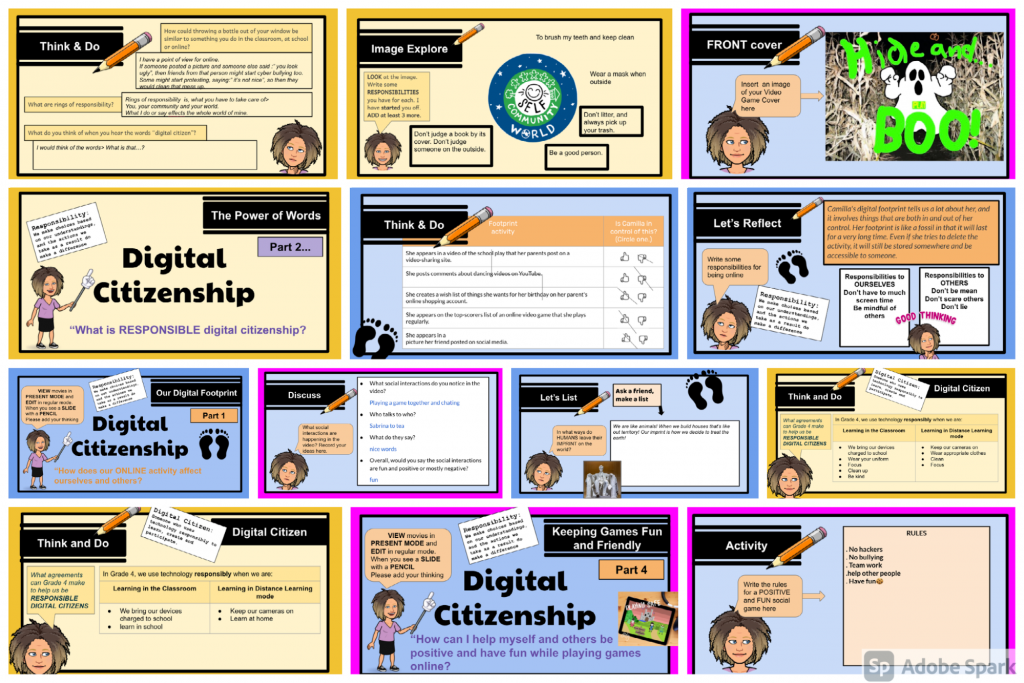Primary eNews – November 6, 2020
Counseling
For children of all ages, imaginative play is an integral part of development. It lets children step into their world in a way that fosters creativity. From engaging in imaginative play, children have a chance to push their physical development. Imagine those times when your child is jumping from couch to couch, pretending the floor is hot lava. This type of play allows children to practice language and social skills in a non-threatening way. They practice problem-solving and self-regulation, all without our involvement. If you join via request, it opens up ways for you to teach positive behaviors in a non-explicit and fun way.
You can promote imaginative play mostly by stepping aside and providing free time. Some children like to use items around the house as props. You can try to provide opportunities to interact with children of varying age groups. Dress-up boxes are fabulous for fostering imaginative play. And one of the best ways to help your child tap into imaginative play is providing time in nature.
When you look at top skills employers look for in candidates, you will find that creativity, communication, collaboration, and problem-solving tend to top the lists. Imaginative play is a head start to success.
Grade 2 Indonesian A – Public Places
Grade 2 Indonesian A students have been learning about services in local communities. Students demonstrate their knowledge and understanding of vocabulary and simple grammatical structure related to public places, public transportation, and kind of community services.
Specific vocabulary related to this topic was introduced using word and picture. The students also gain knowledge about public places and public transportation by playing several games, like the picture reveals, guessing the sounds, guessing the gesture, and many more. Here are some examples of students’ work.
Grade 4 Indonesian A – Body System
Grade 4 students have been learning about the body system and how they work (function). In the beginning of the lesson, they brainstorm the idea about the type of wellness and healthy choices by drawing their own healthy lifestyle diagram and by using the KWL Chart (What you KNOW, What you WANT to know, and What you LEARNED). They were also reviewing the vocabulary about the part of body and activity.
To improve their reading comprehension skill, they were provided some texts about a healthy lifestyle. They need to read it aloud and answer the questions based on the text. They also practiced their writing skill by writing some sentences based on the pictures. Here are some examples of students’ work.
BIS Overwhelmingly votes for Joseph R. Biden for US President in BIS 2020 Mock American Election
Thank you to everyone who voted in our BIS 2020 Mock American Presidential Election. All votes that were cast were valid and all proper rules, procedures and protocols were followed. The election was open to BIS students in grades 5 through 12 and all staff/faculty/teachers.
The Results:

1) Joseph R. Biden – Democrat
59 votes (82.4%)
2) Howie G. Hawkins – Green
10 votes (13.5%)
3) Donald J. Trump – Republican
2 votes (2.8%)
4) Jo Jorgensen – Libertarian
1 vote (1.4%)
By The Numbers
-83.3% of our total voters were students and 16.7% were teachers/faculty/staff.
-12 teachers/staff/faculty voted. That translates to roughly 13% of all eligible voters who actually cast a vote.
-62 students voted. That translates to roughly 47% of eligible voters.
-31% of all total eligible voters cast a vote. If BIS were a country it would rank 36th in the world in percent of eligible voters who actually voted versus all potential voters in worldwide national-level elections since 2014.
Thank you again for your democratic participation, Mr. Marshall.
Health and Digital Citizenship in the Grade 4 Classroom
The Going Further stage of our unit of inquiry has focused on students identifying “ways to keep the systems of our bodies healthy”. We grouped activities into broad categories: nutrition, exercise, mindfulness, sleep, and hygiene.
Through experiments, reading comprehension tasks, discussion groups and family collaborations students explored each group to gain a deeper understanding of how each category connects with the different systems of our bodies.

With a focus on healthy minds, Grade 4 has been engaging in Health lessons. We connected our key concept of RESPONSIBILITY to talk about emotions and healthy selves.

Each week Grade 4 participates in Digital citizenship lessons asking ourselves some really important questions: what does it mean to be a responsible digital citizen, how does my online activity impact myself, my family, and my friends and how can I help myself and others to be positive and have fun while playing games online?
Here are some of the great ideas that we shared. We even ADDED some more statements to our Grade 4 ESSENTIAL AGREEMENTS.
So, what next! With all this inquiry, discussion, collaboration, and practice, Grade 4 will REFLECT and take ACTION by making some “personal pledges” for ongoing Healthy Habits.






